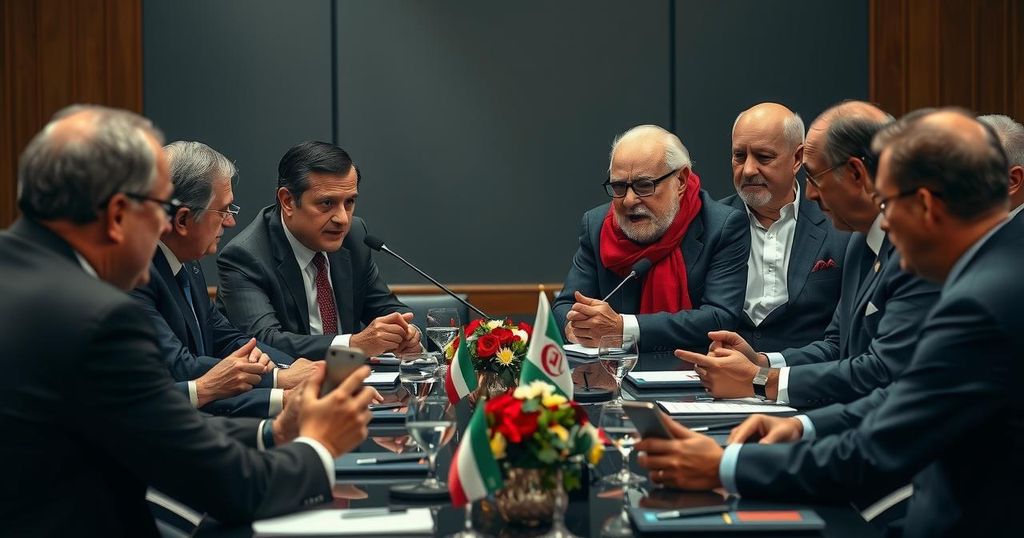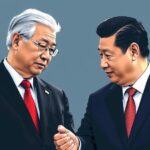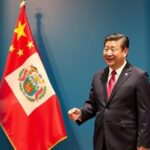Politics
APEC, ASIA, ASIA - PACIFIC ECONOMIC COOPERATION, BID, BIDEN, BONNIE GLASER, CO, DONALD TRUMP, ECONOMIC COOPERATION, FOREIGN POLICY, GEOPOLITICS, GERMAN MARSHALL FUND, INTERNATIONAL RELATIONS, JOE BIDEN, LIMA, NORTH AMERICA, PACIFIC, PERU, SOUTH AMERICA, STRATEGIC PARTNERSHIP, TAIWAN, TRUMP, UNITED STATES, US-CHINA RELATIONS, WASHINGTON, XI, XI JINPING
Clara Montgomery
Xi Jinping Signals Cooperation with Trump During Final Meeting with Biden
During a meeting in Peru, Chinese President Xi Jinping pledged cooperation with incoming President Trump, while both leaders acknowledged the complexities of U.S.-China relations under Biden. Analysts predict increased volatility, particularly due to Trump’s proposed tariffs. Despite these challenges, Xi emphasized the importance of communication and cooperation, while Biden stressed avoiding conflict amid strategic competition.
During his final meeting with President Joe Biden at the Asia-Pacific Economic Cooperation (APEC) summit in Peru, Chinese President Xi Jinping expressed a commitment to collaborate with incoming President Donald Trump. Both leaders discussed the complexities of U.S.-China relations, recognizing the highs and lows experienced during Biden’s term. They emphasized a reduction in tensions concerning critical issues such as trade policies and the status of Taiwan. However, in light of Trump’s impending presidency, analysts warn that relations may shift towards increased volatility, particularly given Trump’s plans for elevated tariffs on Chinese imports, impacting trade dynamics significantly. The meeting highlighted the Biden administration’s approach, which sought to manage rivalry, notwithstanding ongoing challenges, including military tensions in the Taiwan Strait and a series of diplomatic setbacks. Xi indicated that China’s objective to maintain stability in U.S.-China relations remains constant, stating, “China is ready to work with the new U.S. administration to maintain communication, expand cooperation and manage differences.” Meanwhile, Biden underscored the importance of preventing competition from escalating into conflict, reaffirming the necessity for responsible discourse between the two nations.
The context of this meeting between Xi Jinping and Joe Biden is rooted in the complex relationship between the U.S. and China, characterized by strategic competition and mutual dependence. Historically, former President Donald Trump adopted a confrontational stance towards China, labeling it a strategic competitor and attributing the COVID-19 pandemic to the country. The latter part of Biden’s presidency also showcased tensions with China, including military confrontations and trade disputes. As Trump prepares to return to office, concerns arise over the unpredictability of his policies and potential escalations in tariffs, which could further strain relations.
In conclusion, Xi Jinping’s commitment to work with Donald Trump marks a potential shift in U.S.-China relations as the latter prepares to take office. Despite past tensions and ongoing challenges, both leaders expressed a willingness to communicate and manage their differences. However, the outlook remains cautious as analysts predict volatility in relations due to Trump’s tariff policies and assertiveness towards China. Ultimately, the responsibility to navigate this complex dynamic lies with both administrations.
Original Source: www.bbc.com








Post Comment